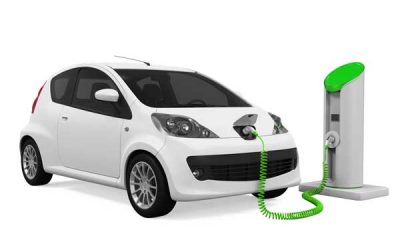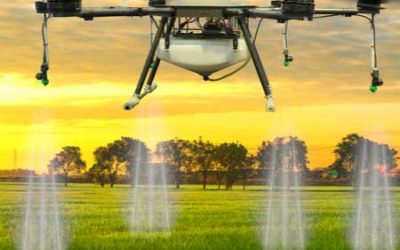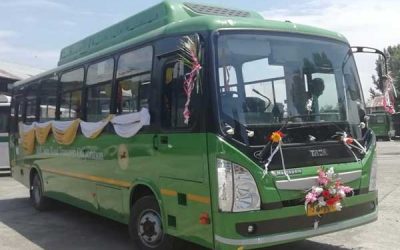Buoyed by the early signs of enormous digital transformation opportunities and demand for cloud-based solutions, salary hikes at IT firms in India appear to be returning ever since the COVID-19 disruption had made an adverse impact.
The COVID-19 led economic slowdown resulted in a monumental setback for many tech companies across the world. Low visibility of revenue growth and market gloom resulting from the pandemic forced India’s IT majors to suspend employee salary increases and promotions earlier this year. The decision was taken to control operational costs and provide business continuity, even during the crisis.
However, with optimism returning to the sector, salary hikes at IT firms, along with promotions across all grades are being considered by top Indian tech majors such as TCS, Infosys, HCL, Wipro, and Tech Mahindra.
|
Timeline considered for salary hike at IT firms in India |
|||
|
Company |
Revenue in Rs crore (FY2020) |
Current headcount |
Salary hike effective from |
|
TCS |
1.62 lakh |
453,540 |
1 October 2020 |
|
Infosys |
93,594 |
240,208 |
1 January 2021 |
|
HCL |
71,265 |
150,000 |
1 October 2020 (Junior staff) 1 January 2021 (Senior staff) |
|
Wipro |
63,862 |
180,000 |
1 December 2020 |
|
Tech Mahindra |
38,060 |
125,000 |
Early 2021 |
Transitioning to the new normal
At the beginning of the year, most businesses put their energies on deploying a thriving remote work environment and delivering consistent services. However, beginning in the second quarter, companies have accelerated the implementation of digital transformation solutions and increased spending to meet customer expectations to remain competitive in the current environment.
These evolutionary dynamics are having a positive impact on these tech majors. Tata Consultancy Services (TCS) was the first Indian IT major to announce a salary increase for its 453,540 employees as of October 1, 2020. Quickly after the nationwide lockdown announcement, TCS rolled-out Secure Borderless Workspaces Framework, which instantly enabled 90% of its employees to work effectively and meet client expectations remotely. TCS’s consolidated revenue from operations for Q2 stood at Rs 40,135 crores, clocking a 3% year-on-year growth.
The IT Major deferred salary increases in April this year to ensure that employees are not laid off.
For over 2,400,000 Infosys employees, salary hikes are expected to stay the same as in previous years. In recent years, Infosys has rapidly increased its digital and cloud capabilities that have helped it reach 2.2% revenue growth year-on-year, even in challenging times. The company is banking big on the large-scale digital transformation deal wins that materialized recently to accomplish higher than the average growth in the upcoming quarters. (See: Infosys buys GuideVision to boost Dx capabilities)
HCL tech joined the list recently by announcing salary hikes for its junior staff from October 2020 and senior staff from January 2021. The company’s net profit stood at Rs 3,142 crore for the September quarter, up 7.4% sequentially, and 18.5% year-on-year.
India’s fourth-largest IT Services provider, Wipro, witnessed a strong second quarter, which resulted in better margins and robust revenue growth. It celebrated the performance by announcing salary increases from December this year for 80% of its 1.85 lakh workforce. Throughout 2020, the company made a significant investment in acquisitions that could lead to substantial gains in the fiscal year 2022. (See: With Encore buy, Wipro eyes DX edge in fintech)
Tech Mahindra has announced that its employees’ salary increases will begin next year on a phased basis. The company states that the hikes for junior-most employees will be implemented first, followed by senior employees.
Big boost from fast-track digital transformation roadmaps
The sudden spike of COVID-19 cases compelled organizations to enforce fully work-from-home environments. To minimize the impact and support customers virtually within the new standard, organizations have stepped up their digital engagement strategies. The pandemic’s complex challenges are placing large and small businesses in a delicate situation that can only be solved by redefining work and developing agile business models.
During COVID-19, organizations’ dependence on digital solutions, has peaked at new heights, and at BM NXT research, we do not see the interest in digital technologies waning even when the pandemic ends. Businesses worldwide are expected to harness digital channels and continue modernizing their IT infrastructure to innovate faster and reimagine the business landscape. (See: AI-driven analytics is CIOs’ mantra in the new normal)
Going ahead, there will be a continuous rise in the adoption of cloud-based solutions and new-age technologies such as machine to machine (M2M), artificial intelligence, Robotic Process Automation (RPA), and data analytics amongst enterprises. Almost every industry and sector will need to identify new seamless digital communication channels to interact with their customers. This will further open up new revenue and growth opportunities for the IT Services firm to help enterprises build their digital resilience for any such future incident.














0 Comments